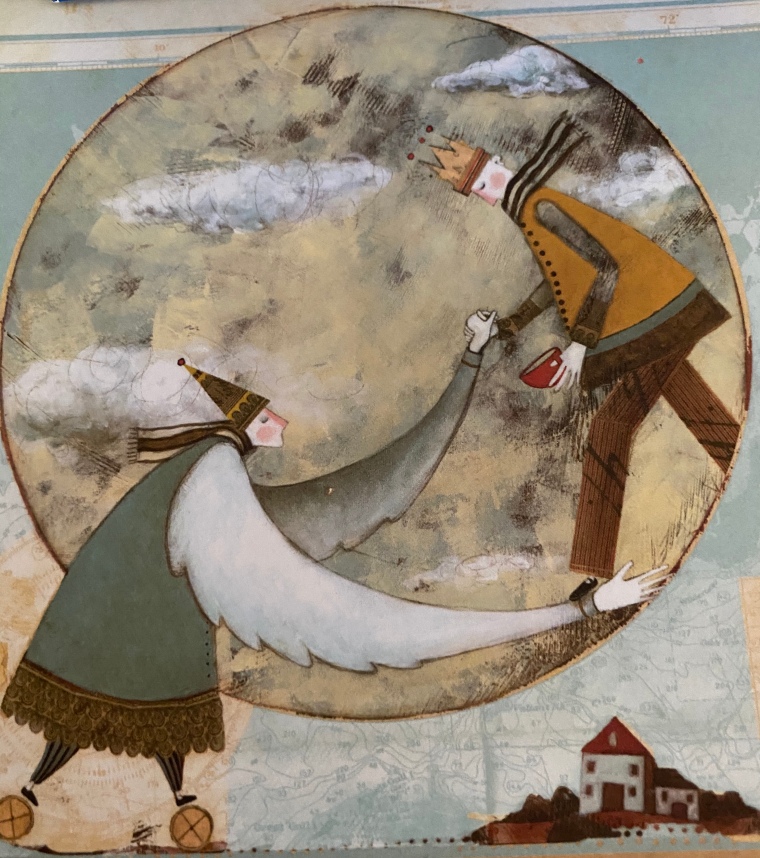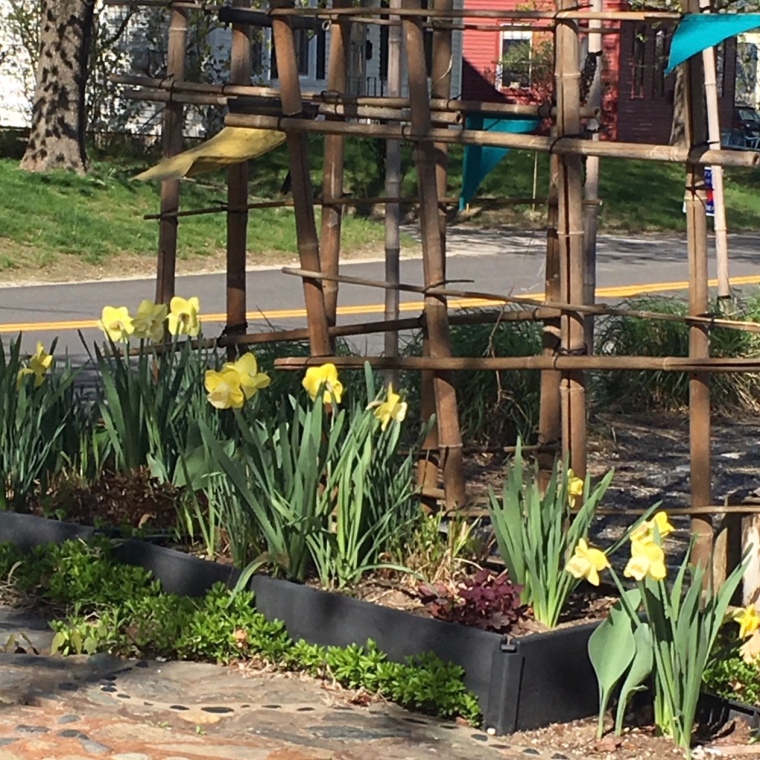
#
Wind shook the windows all night long
And I was still awake at 3:00.
I tried to imagine God singing a song
When wind shook the windows all night long,
But I kept recalling all the things I’ve done wrong
(Which is almost everything, it seems to me),
While wind shook the windows all night long
And I was still awake at 3:00.
#
Either because of Divine Providence or coincidence, I’ve just run across this poem (some people write haikus; I play with triolets) I wrote last year while on retreat in Arizona. And today I’m rereading it after we’ve just lost power and winds are expected to gust to 60 miles per hour.
I’m also watching the wind bend the big maple tree in our front yard towards our house, and thinking that until today the one comforting thing about living in this time of Covid-Crud has been my home, and now even that’s under attack.
Maybe the apocalypse really is upon us.
I find myself remembering Hurricane Carol, which swept through Maine in 1953. Back then, I thought hurricanes were pretty neat. The thunder-sound of the river down the hill mingled with the roar of the wind, the way the house shook, was like some big carnival ride. I couldn’t understand why my father was chain-smoking and pacing back and forth in front of the living room window, muttering, “I hope that goddamned tree doesn’t fall on us.”
These days, I understand his fear. While there are the times I still enjoy the wind—the sound of wind chimes on a summer evening, a cooling breeze on a hot day, the smells of the wind off the ocean— more and more, wind makes me nervous and apprehensive. Besides being potentially dangerous, wind is beyond my control. Wind tends to bring disorder, even chaos. Wind seems to make my anxieties more intense.
Is that true? Can the wind affect our behavior? When in doubt, ask Siri. Yes, in parts of the Mediterranean, a warm humid wind called the “Sirocco” has such an impact on behavior that people convicted of murder were once given shorter sentences if the crime was committed while the wind was blowing. In other words, turbulence in the air can lead to turbulence in the mind.
As long as I’ve got my iPhone out, what causes wind, anyway? Okay, it says here that wind results from pressure caused when warm air rises and then is pushed back down by colder air aloft, where the air then then spreads out in the form of wind. I think of my forest fire fighting days, of learning that the intense heat from wildfires can create its own wind. Some, called fire whirls, can be like tornadoes that speed the fire along from treetop to treetop. I think of the night in Wyoming I saw flames hundreds of feet high racing across the tops of the trees, sounding like a locomotive roaring down a track—one of the scariest experiences I’ve ever had.
But while the principle may be the same, I see a difference between the winds from a hurricane or forest fires and the winds of anxiety that I’m feeling these days. Not about when we might get our power back or if that maple tree is going to fall on the house, but about what kind of world my grandchildren are going to live in. As bad as the devastation from a hurricane or wildfire may be, the fear of these disasters is relatively short-lived. Yes, it may take years to rebuild from such calamities, but the anxiety over what will happen ends when the hurricane passes or the forest fire goes out. Perhaps a hundred years from now, people will look back on the time when the Coronavirus blew through our world as being relatively short, but from where I’m sitting there doesn’t seem to be any end in sight. No end of worrying about my health, about people who are struggling to make ends meet, about friends who work in hospitals, about my stepsons who are trying to home-school their children, about my grandchildren and the scars they will carry from all this.
My rector recently sent Mary Lee and me a blog called “Why am I so Tired?” by the Parasol Wellness Collaborative. The author pointed out that deep in the temporal lobe of our brains, just above the brain stem, is a small structure called the “amygdala,” known as the fear center of our brain. It directs the nervous system to protect us. Our heart rate increases, breathing becomes more rapid and glucose is pumped into the bloodstream, all of which helps us in either our “fight or flight” response. The amygdala, however, cannot distinguish between actual and imagined danger. Its response is automatic—outside our control. (Sort of like the wind, come to think of it, but then, most of the important things in life, I’m finding, are outside of my control.) This is why uncertainty is the most stressful condition our bodies undergo. The amygdala keeps stops working, which is what is tiring so many of us out these days.
The blog suggests that the way to deal with this tiring anxiety is not to make it worse by berating ourselves. Take it easy, lower expectations of ourselves, get exercise, ask for help.
Good advice. I look again at my poem from a year ago, and notice how easy it is to blame myself when anything goes wrong. I suppose it’s a control thing: if it’s my fault when I can’t sleep and the wind blows, at least I’ve got a reason for it. I also think of how often in my life I’ve voluntarily taken the blame for something just to smooth things over, whether it’s a family situation or the weather.
And yes, it’s time to ask for help from that God-of-my-not-Understanding I tend to forget about until the going gets tough. More and more, I’m coming to understand why some of my 12-Step buddies refer to “God” as “Gift of Desperation.” So many of us come to our Higher Power only because of a crisis. I know I certainly wouldn’t have the faith I have—would have no idea of God’s Grace—if my daughter hadn’t died from cancer. It’s taken me a while accept the gift of Grace—I’d much rather have Laurie back—but it’s helped me get through the last thirty years. And If I can, with God’s help, survive that, I can survive, if not this virus (who knows?) but the fear of it.
So, it’s time to stop trying to buck these winds and pray for help in riding them out, letting them blow me wherever they will.
Well, look at that. The power’s back.

# #

I like the whole article, but especially the poem! The gift of grace that you received with the loss of Laurie is like the gift I have received through my physical pain. It seems to me that your suffering has, indeed, made you compassionate.
LikeLiked by 1 person
Missed this earlier. I too liked the whole post. The picture and the poem were wonderful. And your forest fighting! Wow. Brave. Grateful for such actions.
LikeLiked by 1 person